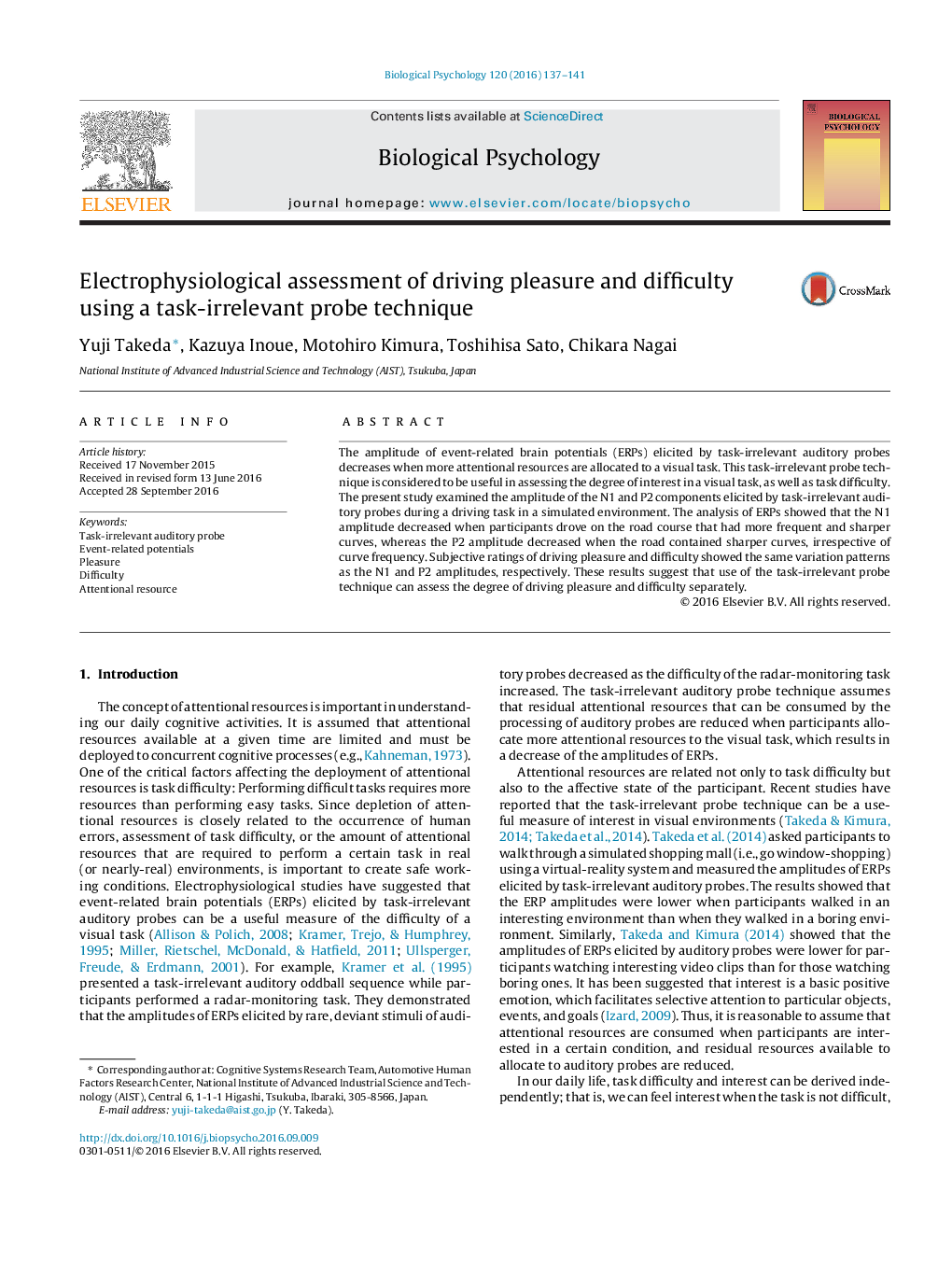| Article ID | Journal | Published Year | Pages | File Type |
|---|---|---|---|---|
| 7278377 | Biological Psychology | 2016 | 5 Pages |
Abstract
The amplitude of event-related brain potentials (ERPs) elicited by task-irrelevant auditory probes decreases when more attentional resources are allocated to a visual task. This task-irrelevant probe technique is considered to be useful in assessing the degree of interest in a visual task, as well as task difficulty. The present study examined the amplitude of the N1 and P2 components elicited by task-irrelevant auditory probes during a driving task in a simulated environment. The analysis of ERPs showed that the N1 amplitude decreased when participants drove on the road course that had more frequent and sharper curves, whereas the P2 amplitude decreased when the road contained sharper curves, irrespective of curve frequency. Subjective ratings of driving pleasure and difficulty showed the same variation patterns as the N1 and P2 amplitudes, respectively. These results suggest that use of the task-irrelevant probe technique can assess the degree of driving pleasure and difficulty separately.
Related Topics
Life Sciences
Neuroscience
Behavioral Neuroscience
Authors
Yuji Takeda, Kazuya Inoue, Motohiro Kimura, Toshihisa Sato, Chikara Nagai,
